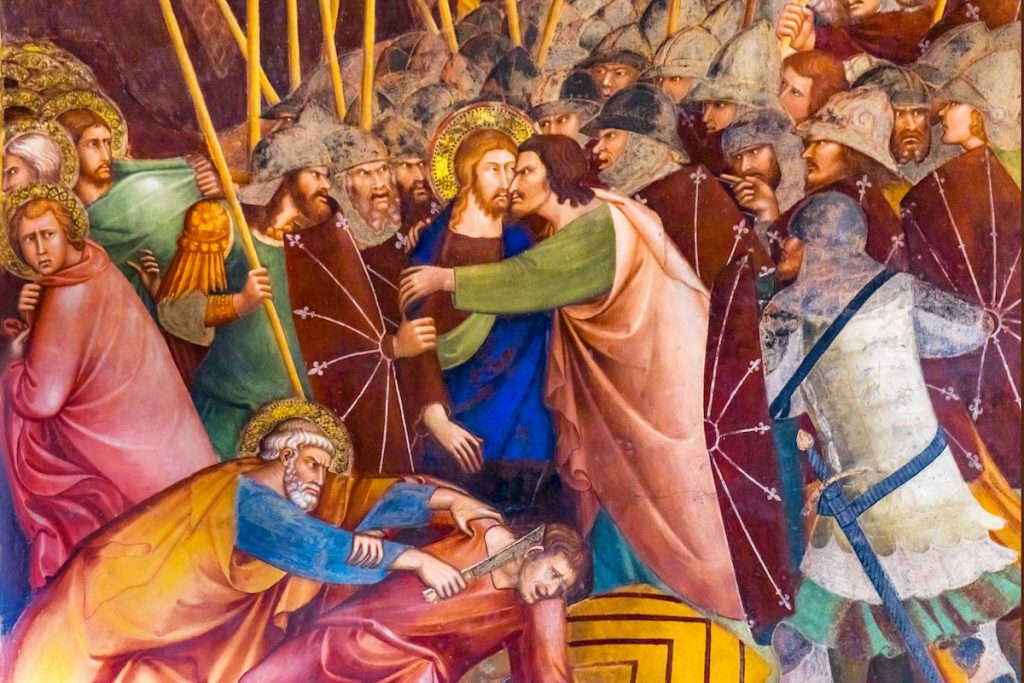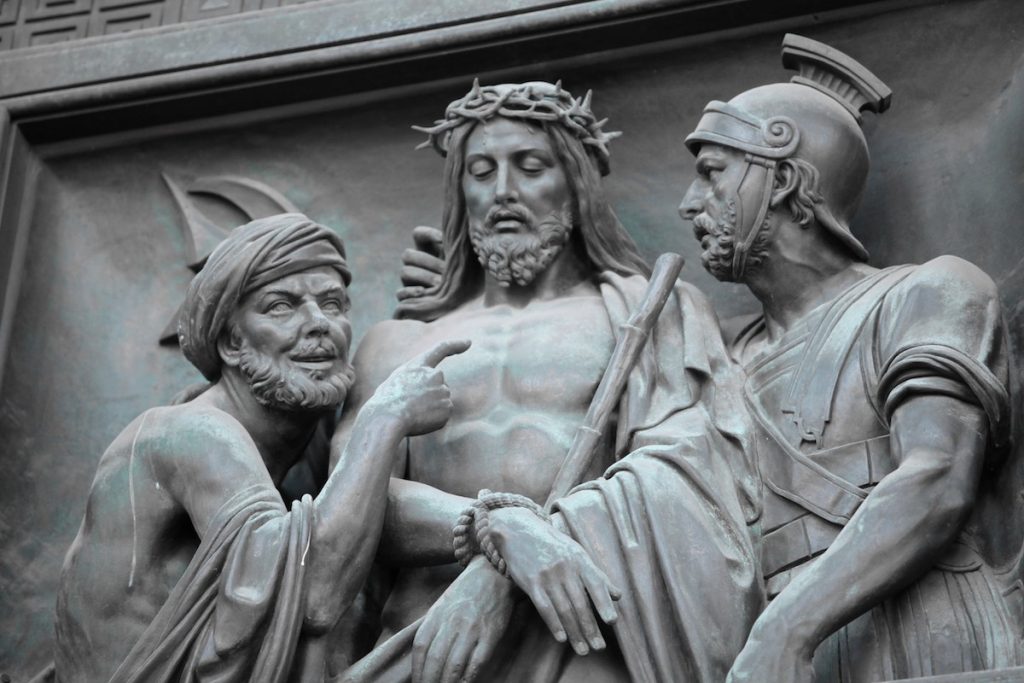
I think I may have been misunderstood by some people in that brief reflection which I posted on my FB page five years ago, entitled, “IN DEFENSE OF JUDAS.”
I wonder if they read it carefully. I was not defending what Judas did. What he did was most definitely despicable, wicked and depraved. He betrayed Jesus and none of that is justifiable.
I also did not say he was merely “being used as a puppet in a play written by God.” Instead, it is the Gospels themselves that say Judas was under the spell of Satan—the real adversary, the real enemy of Jesus.
When I was still a little boy, I remember witnessing the gruesome traditional ritual of hanging an effigy of Judas Iscariot on Black Saturday morning. The whole thing was like a medieval public execution.
The Judas effigy was stuffed with fireworks inside. In the plain view of the children, they tied a thick rope around the Judas effigy’s neck, hanged him from a branch of a tree right in the Church patio, and as soon as he dropped full weight in mid-air, the explosions began.
First to explode were his limbs, and then his arms, and then the torso, until there was only the head left. Of course they saved the loudest explosion for last—the blasting of the head, which usually drew a thunderous applause from the spectators. In some places, the explosion of the head released some candies that were up for grabs from the children among the spectators.
After the ritual, the people would go home fully satisfied and saying things like, “That serves Judas right; he betrayed the Lord.”
It was that condemnatory attitude that I really wanted to call attention to in my post five years ago. It is an attitude which, I believe, is very unChristian. Condemning the sin of Judas and condemning Judas are two entirely different things.
As Christians, we always make a distinction between the sinner and the sin, between the person and the action. We condemn the act of betrayal but we leave the judging of the betrayer to the one and only Judge—God. We say God hates the sin but loves the sinner, nevertheless.

I do not remember any teaching in the Christian faith that says that Christ died only for the righteous. Remember what St. Paul said in Romans 5:8? “In this has God proven his love for us—that WHILE WE WERE YET SINNERS Christ died for us.”
Paul even goes to the extent of declaring that nothing can ever separate us from the love of God because of Christ Jesus our Lord! He confidently declares that neither the Father nor the Son will ever bring charges against us because God’s desire is precisely to save us.
In our Gospel on Holy Wednesday, Matthew quotes Jesus as saying, “Woe to that man by whom the Son of Man is betrayed. It would have been better for that man not to have been born.”
I would probably say that to myself too if I were to find myself in the position of the betrayer. I’d probably say “I wish I had not been born.”
Several verses away, this same evangelist tells us about the repentance of Judas. He says in Mt 27:3-5, “When the betrayer, Judas, saw that Jesus had been condemned, he deeply regretted what he had done. He returned the thirty pieces of silver to the chief priests and elders, and said, ‘I have sinned in betraying innocent blood.’”
Unfortunately, it was too late. He could not save Jesus anymore even if he returned the money. And so he threw away the money, went off and, in despair hanged himself. That’s what we usually fault Judas about—that, unlike Peter, he had totally lost trust in the Lord’s capacity to forgive. Try saying that to people who are in a state of depression or a brittle state of mental health.
A few weeks ago, if you remember, I noted the parallelism between the drama in the life of the twelve sons of Jacob (in Gen. 37-50), and the twelve apostles of Jesus in the Gospels. In both instances the betrayer is one of the twelve.

In the book of Genesis, it is Judah who proposes to sell Joseph as a slave for 20 pieces of silver. In the Gospels, it is Judas who hands him over to the chief priests for 30 pieces of silver! Take note, “Judah” and “Judas” in Hebrew (Yehudah) are basically the same name.
In both instances, the betrayer repents. In the case of Judas, the repentance of course tragically ends with suicide. I wonder what would have happened if Judas had been crucified next to Jesus, he would probably have become the repentant thief who is forgiven.
Unfortunately, the Gospels are silent about his forgiveness. They only say that “on the night he was betrayed,” Jesus “took the chalice … gave it to his disciples as the blood of the new covenant, “FOR THE FORGIVENESS OF SINS.”
If you remember, I quoted that scene in the Joseph story where Joseph forgave Judah and his brothers. Remember when Joseph broke down and finally revealed who he was? He said, “I am Joseph … I am your brother whom you sold as slave into Egypt … Do not blame yourselves. It was really for the sake of saving lives that God had sent me here ahead of you … in an extraordinary act of deliverance.”
There is something terribly wrong about Christians rushing too quickly into judgment, condemning people they regard as sinners, as if they were God. It sends shivers to my spine. It is no different at all from the tendency on the part of many Filipinos to agree that the best way of dealing with suspected criminals, addicts, communists and terrorists is by killing them extrajudicially. Forget about due process.
I hope they remember the old saying that goes, “When you point an accusing finger on somebody, do not forget that three others are pointing at you.”
This is a homily delivered by Bishop Pablo Virgilio David of Kalookan for Holy Wednesday, March 31, 2021, Mt 26:14-25
Source: Licas Philippines
0 Comments